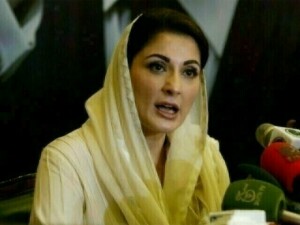Last week, Competition Commission of Pakistan (CCP) initiated an inquiry into suspected collusion by commercial banks in issuance of government treasury bills (T-Bills). This is highly unusual. The push has come from the federal government to probe banks over possible collusion. It has become fashionable, especially under this government, to put the blame of any price increase or shortages in any market on the manufacturers or service providers.
It has also become fashionable to refer to every industry as a ‘mafia’ or ‘cartel’. However, in many cases, the root-cause of the problem is strengthening of the regulator, while deregulating of the markets is simply not happening. This effort of initiating inquiries and churning reports is leading to nowhere.
An inquiry into possible cartelization or maneuvering by market participants is nothing new under this regime. However, an inquiry against banks’ (primary dealers) behavior in T-Bills bidding process is unique. Banking is a highly regulated industry and the apex regulator, State Bank of Pakistan (SBP) is one of the better and capable regulators in Pakistan.
There are frequent audits and strong checks on banks by the central bank and that maintains the financial stability in the country and protects depositor’s money. Banking businesses and bonds/papers auctions is a sophisticated process, and SBP is actively involved in it. One may wonder about the capability and capacity of CCP to identify and handle collusions, if any, in this case.
In the past several months, government became upset with the banks due to increasing differential between the cut-off yield of T-Bills and SBP’s policy rate. That is happening due to the current circumstances, not cartelization. Currently, there is a net injection in the market. The government is short of liquidity to the tune of Rs 2 trillion.
The reason for shortage is that SBP is not at all allowed to lend to the government. In earlier International Monetary Fund (IMF) programme, the restriction was of net zero quarterly borrowings. Now it’s a total ‘no go’ area. And in rising interest rate environment with liquidity shortage, the difference between the policy rate and market rates is not surprising.
Moreover, a lack of coordination between the SBP and Ministry of Finance’s (MoF’s) debt office has made things worse. In November 2021, SBP preponed the monetary policy decision to 19th, and discarded its forward guidance of measured increase by raising rates by 150 basis points (bps).
In the T-Bill auction that took place on 17th, the government rejected almost all the bids to keep its borrowing rates low. In the following auction of 1st December, MoF accepted bids at much higher rates than what was offered on 17th November. Had the SBP preponed the policy prior to 17th Nov auction, or had it announced the preponing after 17th (it was announced on 16th), the MoF would not have been cornered and embarrassed. SBP failed to take MoF on board.
Then in December, maturities were piling up and MoF faced higher targets, and had to pick larger chunks at higher cut-off. Had the government not rejected most of the offerings in September to November, it would have not been cornered in December. The point is that the goof-up is from the official side due to lack of coordination between MoF and SBP, and poor judgement by MoF in rising interest rates days. Now the finance ministry is putting the blame on banks by raising suspicion of cartelization of banks in PM’s and his cabinet colleagues’ minds.
There are 15 primary dealers (including two special purpose dealers) -mostly are commercial banks. These dealers are selected by SBP every year. These dealers bid in auctions for themselves and on behalf of their clients. BR Research has covered these auctions for over a decade and have found that traders and treasurers are very secretive about their bids. They try to outsmart each other, and engage in intense competition.
Lately, however, the market has been smelling blood. Yes, the fund managers and treasurers were showing greed. But that doesn’t necessarily mean they are colluding. It is usually a cat and mouse game. The right way to deal is by right signaling from the SBP and MoF in a coordinated way. Now, SBP is finally signalling right. Earlier, it issued two months Open Market Operations (OMOs) from usual one-week issues to cover banks’ naked risk in rising interest rates scenario. That has worked to lower the yields.
Then in the latest monetary policy, SBP clearly signaled the (almost) end of tightening cycle. Then, in both T-Bill and PIBs auctions right after the policy announcement, MoF lowered the cut-off yields. With these coordinated efforts of SBP and MoF, those fund managers and treasurers who were betting to buy bonds at 13 percent are now fearing that they might miss the train. The cat has been bagged. The issue is finally being dealt with well from issuers side.
In this backdrop, CCP’s probe is misplaced. This leads to the bigger issue of how regulators have begun to question every industry on rising prices or shortages under this regime, leaving them at the behest of CCP, FIA (Federal Investigation Agency) and NAB (National Accountability Bureau)-like institutions, without realizing the lack of capacity of these institutions and the damage such inquisitions do to investor’s confidence.
Not every market action is due to cartelization or manipulation. Businesses are driven by profit motive. The markets should be efficient enough to ensure price discovery. These are structural issues in many industries which require unbiased introspection. Not everything can be solved through probes by investigative agencies. For example, in sugar, the market mechanism is distorted. The role of government is huge. The need is to cut government’s footprint.
There is another example of petroleum. There was shortage in summer of 2020. That was bound to happen due to government pricing regime. Prices nosedived in the international market in March 2020. Pakistan was under lockdown and imports had fallen.
Then, once international prices moved up, the government maintained June 2020 prices based on PSO’s (Pakistan State Oil’s) previous imports which were too low. No oil marketing company (OMC) was ready to import at higher prices and sell at discount. The result was shortage in June. But instead of deregulating the market, an inquiry commission was formed.
Most regulators are weak in Pakistan. The government should make market processes more efficient by reducing its presence and strengthening the regulator. Within banking, the real regulatory failure is the money flowing out of the banking system. Bring that money back into the system, T-Bills rates invariably will come down.
MoF and SBP should work together on policies to reduce the currency in circulation. Out of total money supply of Rs24.7 trillion, Rs7.2 trillion are cash holdings – outside bank deposits. That is too high a number. Large sums of these are in lockers located in banks’ branches, but do not show as banks deposits.
For bringing this cash back into the formal banking system, the government needs to work on bringing the largest unregulated market of real estate into the formality. Today, no bank account, no brokerage account, no mutual fund account, or no sim card can be issued without biometric verification.
But tens of thousands of real estate transactions take place without any central recording. Bags of hard cash are being exchanged in these deals, yet no one questions these. With such perverse incentives, nothing can be fixed. Hit the nail where it is truly needed. Rest is all superficial. And unnecessary probes and investigations without fixing the core would only add more distortions to the system.
Copyright Business Recorder, 2022
Ali Khizar is the Director of Research at Business Recorder. His Twitter handle is @AliKhizar























Comments
Comments are closed.